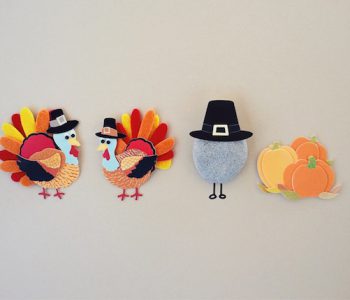Adventures in German Part 1: “Floppysheep”
At the beginning of my relationship with my German husband, I was determined to learn his language. Not strictly necessary, of course, as he speaks perfect English. But the hard-working masochist in me said “hey, turnabout is fair play!”
One of my many failures in the language has to do with pronounciation of German vowel sounds. In addition to the problematic umlauted vowels (“ä”, “ö”, “ü”) — which every beginner in the German language knows are built only for mouths that have spoken German since birth — the German language includes subtler differences in long and short vowels. These are easy for English-speakers to pronounce, but dastardly hard to recognize and remember where and when they appear.
My husband, being a helpful fellow (and because he is tireless in trying to stop me mangling his native language), suggested the following practice exercise.
Schaf, the German word for “sheep”, is an example of a long “a”.
Schlaff is the German adjective for “droopy, floppy”, and is an example of a short “a”.
(I won’t presume to try to describe here the difference in the sounds; my need for this exercise already demonstrates that I have no clue why they sound different. Let me just say they vary in the length of the “aaaaah” noise you make in the middle of each word.)
For the next few days, I absently mutter “schlaff schaf schlaff schaf” in an endless loop to accustom my speech to the sound and taste of the different vowels. After this repetition, the words had lost their meaning to simple pronounciation exercises. Until I found my (then) boyfriend laughing at me — which is in and of itself not unusual.
“What?” I asked, somewhat paranoically (which is also not unusual).
“You sound hysterical!”
“What do you mean? Am I still saying it wrong?”
“No, but how would you react to me wandering around muttering ‘floppy sheep floppy sheep’ to myself??!”
Have to admit I saw his point.
Playing on the German tendency to mash multiple words together to create new ones (which I personally adore and often abuse), “floppysheep” came to symbolize my difficulties with the German language.
(I would like to note that I have since advanced far enough in the German language to realize that because Schaf is a neuter noun that the grammatically correct phrase is ein schlaffes Schaf. But that fact has little to do with the current story and is just here to prove I’m not still completely hopeless at German.)




4 COMMENTS
Dascha ‘n staaken Foortschritt!
And yes, I learned much about my native language by watching you learning it. Now I not even know it is comlicate, now I also know why and where.
Oooooohhhhhh, now I get it!!
When I think about learning Spanish, it’s always “¿Cómo está usted?” ad nauseum around the classroom, and getting stuck with Guillermo for Bill.
For German, my brain immediately goes to:
“Im Sommer ist es warm.”
“Im Winter ist es kalt.”
Hah. Remind me to make a post about the entire summer I confidently declared the weather in Hamburg to be “homosexual”….